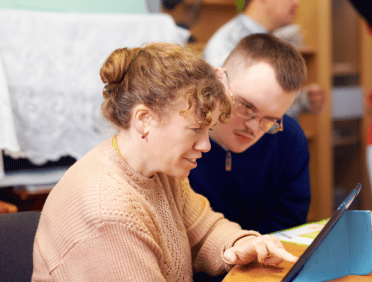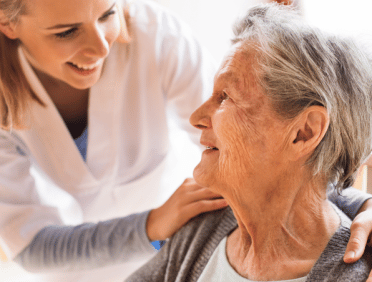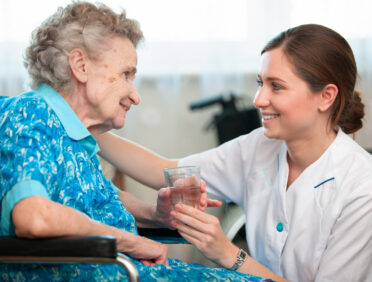Safeguarding isn’t just for children. It’s important to make sure that companies safeguard adults who are at risk.
What is Adult Safeguarding?
Adult safeguarding is a very normal part of workplace conduct. If a company operates in a sector where they are dealing with vulnerable adults on a regular basis, then adult safeguarding policies are a must. Adult safeguarding refers to the protection of vulnerable adults from anything that could be considered harm, neglect, exploitation, or abuse. The abuse can take the form of physical abuse, mental abuse and sexual abuse, and is an important part of safeguarding policies.
What is Abuse and Neglect?
When discussing abuse and neglect of adults, it’s important to understand what the two terms mean.
Abuse can take many forms. It is often agreed to be the act of causing harm to a person. Abuse can be physical, mental, or even sexual. Neglect is more specific to safeguarding and working with vulnerable adults in the sense that it is about failing to provide the basic physical and psychological needs for a vulnerable adult. Abuse however, is much more generalised, and takes place in a wide range of settings, from the workplace to the domestic environment.
The Care Act 2014: Safeguarding Adults
The Care Act 2014 says a clear legal precedent for how local authorities and other parts of society are expected to help protect vulnerable adults from the risk of neglect or abuse. The care industry has been established for a long time, but this was the first major reform brought to the industry and to carers operating in a private capacity, like for example caring for a family member or loved one.
The local authority now has new safeguarding duties in accordance with the act. They are required to lead a proper multi-agency adult safeguarding system that prevents neglect and abuse and stops it quickly. They have an obligation to make investigations or request others to investigate on their behalf when they believe that an adult who needs care and support is at risk of neglect or abuse, and they have an obligation to find out what action may be required.
Local authorities are expected to establish safeguarding boards that comprise a mix of representatives from the local authority, police and NHS to develop, put together, and implement a safeguarding strategy.
Local authorities were expected to carry out reviews for safeguarding adults, and to make sure that when somebody with care and support dies as a result of abuse or neglect that the local authority and its partners could not have done more to try and protect them.
Local authorities have the responsibility to provide an independent advocate who is prepared to represent and support someone that is the subject of a safeguarding review or enquiry if necessary.
The Role of Health Services
When it comes to the role of health services in safeguarding vulnerable adults, the NHS is required to cooperate with the police and local authority representatives to develop a safeguarding strategy that is going to work.
Obviously, the NHS does have a certain provision of care and support packages that take place within the community, and they have an obligation to work according to their own internal policies, but they also have a responsibility to cooperate with the larger community to ensure the safety of people who are not under NHS care.
Who Might Need Safeguarding Services?
When we explore who may need access to safeguarding services, we have to consider that there are numerous different parties who might be considered to be vulnerable depending on the situation.
However, common examples of people who need access to safeguarding services are the elderly, young people, people who have a reduced mental capacity owing to an illness or disease, people who are physically or mentally impaired due to a condition or accident, pregnant women, and anybody operating from a position of reduced capacity owing to circumstances beyond their control.
When Do Safeguarding Duties Apply?
Generally speaking, safeguarding duties begin to apply when there is suspicion that there is abuse and neglect taking place. If there are actual situations where neglect and abuse have been documented and observed, then safeguarding duties are immediately applied, but professionals have the capacity to act if they believe that there is suspicion that neglect and abuse is taking place.
Where Do Safeguarding Duties Not Apply?
Generally speaking, safeguarding duties apply in a range of different situations, but there are a few places where they do not have any relevance. The primary example for this is in a prison setting, because the wardens, guards, and staff working in the prison have responsibility for the well-being and treatment of prisoners, and safeguarding does not apply within prison walls.
Which Organisations Do the Duties Apply To?
The main safeguarding responsibilities and duties fall to the local authority as the lead organisation that are responsible for safeguarding under the care act.
However, any organisation or individual that is both directly or indirectly involved with an adult in the care and support system has clearly defined responsibilities regarding working together with local authorities and other parties to reduce the risk of neglect and abuse, to recognise neglect and abuse, and to report it where necessary.
For people who use care services, safeguarding is all about ensuring their protection from harm.
People who use care services have a right to receive care and support for whatever reason without being at risk of neglect or abuse. For the safeguarding principles that have been designed for their protection first and foremost, and so any decision that is made regarding that situation must be done with their welfare in mind.
Safeguarding Adults and Their Welfare
When working with adults, it’s important to make sure that their welfare is protected and they are safeguarded from harm. This means developing and creating a proper safeguarding policy which outlines what the company will do to protect vulnerable adults from harm, how they will actively train staff to be mindful and work in accordance with the policy, what the policy will cover, how to respond to instances where neglect or abuse have taken place, and in a lot of cases, work to the same criteria as if designing a safeguarding policy for children.
Preventing Abuse and Neglect
In accordance with the principles of safeguarding, it’s important to prevent neglect and abuse before it becomes a major problem. This means being able to not only identify the symptoms and signs that abuse or neglect has taken place, but also to know what to do in the event that abuse and neglect is discovered, such as logging it in a correct way and reporting it to the relevant authorities and scaling it up the chain of the business or company in question.
How to Report a Safeguarding Concern
If an adult is in clear and immediate danger, it is acceptable to call 999 and ask for the police. However, if the situation is not immediately life-threatening, then it is necessary to report the abuse immediately and provide as much information as possible to an immediate superior, and then to contact the local authority.
When reporting any safeguarding concerns, it’s important to keep detailed notes about the situation. This information may form the backbone of a legal case later on, as evidence may be required to prove that neglect or abuse has taken place. Make sure that you know what exactly is happening, who you have spoken to, what actions they agreed to take, and if those actions were taken afterwards.
Disclosing Information About Adults at Risk of Harm
It’s important to recognise that in the wake of GDPR regulations that came into effect in 2018, reporting abuse must be done mindfully so as not to unnecessarily reveal information about adults who are at risk of harm to parties that have no need for this knowledge. Therefore, the knowledge that is revealed must be appropriate to the situation at hand, done so in relevant and timely fashion, and should be noted down properly as to which information has been revealed.
LearnQ Training Available
Any person who works with vulnerable adults must have the correct training to do so. Therefore, it is important to seek out adequate training providers, and LearnQ is happy to oblige.
We are more than capable of providing full training for your entire team, and can make sure that everybody is suitably educated and trained in the importance of safeguarding, how to recognise abuse, neglect, and what to do in the event there is a safeguarding concern.
The reputation of a care provider is dependent on their ability to adequately safeguard the people in their care, so full training is not only mandatory, but vitally important to ensuring that the business stays open. We can provide full training and safeguarding, making sure that your staff are ready to handle the situation with professionalism and to keep people safe.
To download a .pdf version of this blog, please click here.












